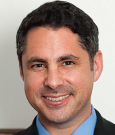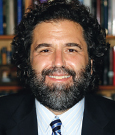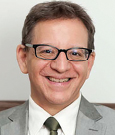Although varying levels of existential distress are near-ubiquitous among patients with cancer, evidence-based interventions in this clinical area remain somewhat elusive. Seeking to explore novel approaches in the palliative care environment, New York University (NYU) School of Medicine principal investigator, Stephen Ross, MD, and researchers evaluated hallucinogenic therapies in their recently completed NYU Psilocybin Cancer Anxiety Study.1
According to co–principal investigator and director of palliative care research Anthony P. Bossis, PhD, results from the pilot study may indicate some promise for assuaging cancer-associated psychosocial distress. However, before psilocybin—known in street vernacular as “magic mushrooms”—is ready for clinical use, the oncology community will need solid evidence from well-designed phase III trials—and then some.
Breaking the Perception Barrier
Deep-seated cultural perceptions about drugs are difficult to shake, and such is the case with psilocybin; it unleashes images of 1960s hallucinogenic escapism. Moreover, the The Controlled Substances Act (CSA) as part of the Comprehensive Drug Abuse Prevention and Control Act of 1970 registered hallucinogens as schedule I drugs, meaning they had high potential for abuse and little to no medical value. However, Dr. Bossis noted that psilocybin, which is an active compound found in many species of mushrooms, had been studied from the 1950s until the 1970s, when cultural, political, and regulatory forces closed the scientific door on hallucinogens.
During that 2-decade period, Dr. Bossis noted that more than 1,000 clinical and research papers were published on hallucinogens that were tested in various settings on approximately 40,000 patients. One population that demonstrated a positive response to hallucinogenic therapy was advanced cancer patients. Now, after decades of dormancy, regulatory strictures have eased, making it possible to fund and launch studies that assess the clinical value of psilocybin therapy in the cancer setting.
The Mystical Experience
Over the past few decades, methods to assess and address the spiritual and psychosocial needs of cancer patients have been incorporated into the oncologic palliative care model. Despite progress, numerous studies have found that a majority of late-stage cancer patients still report unmet spiritual and existential needs.
Dr. Bossis commented that his personal interest in the emotional anguish of cancer patients stemmed from his work at Bellevue Hospital Center, where he cofounded the hospital’s palliative care service. “I’ve always been intrigued by the psychospiritual existential component of the suffering associated with cancer. We’ve gotten better in palliative care, but we’re still struggling with treating the deep emotional distress our patients suffer,” said Dr. Bossis. “There has been some successful psychotherapy in palliative care, such as meaning-centered group psychotherapy, which has been extensively studied by William S. Breitbart, MD, at Memorial Sloan Kettering Cancer Center.” (See sidebar for comments from Dr. Breitbart.)
Dr. Bossis and his fellow researchers hypothesized that properly controlled psilocybin therapy could fill a much-needed void in palliative care by initiating a cathartic state of enhanced spiritual awareness.
“Psilocybin and other psychoactive organic compounds have been used for millennia and have reliably been shown to activate what is known as the mystical experience in humans,” said Dr. Bossis. He explained that the mystical experience is a transcendent state, during which cancer patients may be able to separate themselves from the disease—ie, “I am not my cancer.” In the NYU study, they found that this kind of mental recalibration engenders a vital sense of self-identity, which many cancer patients struggle to maintain as their disease pushes them into the isolated world of the sick.
Dr. Bossis said, “The mystical experience has been shown to improve a patient’s existential well-being and [his] ability to reframe the impact cancer has on [his] life by giving [the patient] an increased appreciation of time living. The patient recognizes that [he is] not dying per se; [he is] living, until the moment of death. Ultimately, the patient fears death less and embraces life more, becoming an active participant in life and enriching [his] interpersonal relationships, which is one of the first casualties in advanced cancer.”
The Trial
The NYU Psilocybin Cancer Anxiety Study is a double-blind, placebo-controlled pilot study to assess the safety and efficacy of psilocybin-assisted therapy on psychosocial distress, with a specific primary outcome variable being anxiety associated with advanced cancer. Secondary outcomes will examine the effect of psilocybin on symptoms of pain perception, depression, attitudes toward disease progression, and quality of life. Psilocybin was dosed at 0.3 mg/kg; enrollment began in April 2009, with 29 volunteers.
The inclusion criteria were age 18 to 76, historical diagnosis of cancer, and anxiety associated with cancer. Exclusion criteria were a personal or family history of a severe psychiatric disorder, epilepsy, diabetes, abnormal liver function, or severe cardiovascular disease. The researchers hope to publish their results in the coming year.
The venue for the study was not the usual clinical setting. First, each patient underwent a screening process with the project manager and was then assigned to one of three therapists. “There are three 2-hour therapy sessions during which a sense of rapport is built between the patient and therapist. Without that rapport and trust, we wouldn’t go to the dosing session. Also, during the preparatory sessions, we get a full personal history, including [the patient’s] childhood, social background, and how the cancer has affected [the patient],” said Dr. Bossis.
The therapy session is conducted in a comfortable living room–like setting, decorated with paintings and elegant rugs and soothing lighting. “We talk for a bit, and at 9 AM, the patient takes the capsule. It’s double-blinded so no one knows if it’s psilocybin or placebo. About 30 minutes later, the patient is encouraged to lie on a couch with eye mask to block external visual distraction and to wear headphones through which melodic classical music is played,” said Dr. Bossis. “We tell people to check their ego at the door, just go with where their mind takes them. If something frightening comes up, we’re here to help them through it.”
The first 2 hours of the approximately 6-hour psilocybin episode can be emotionally turbulent, but according to Dr. Bossis, it “evens out” and the patient “peaks,” experiencing visual images and memories that often elicit strong, emergent emotions. “We check in with a soft touch on the shoulder every hour or so, just to make sure everything’s smooth. When the drug wears off, the patient relaxes and shares the experience if he or she chooses,” said Dr. Bossis. The patient’s vitals are monitored all day, and food and drink are available all day as needed.
The researchers conduct three follow-up psychotherapy integration sessions after the psilocybin episode, during which the patient discusses the experience and shares any insights. Then there’s a 7-week period before the next dosing of either placebo or psilocybin, followed by three sessions of psychotherapy integration. “For about 6 months after the last session, the patient is busy filling out paperwork detailing the measures that we’re aggregating for our results,” said Dr. Bossis.
Shrinking the Fear of Cancer
Co–principal investigator Jeffrey Guss, MD, explained that psilocybin is 4-phosphoryloxy-N, N-dimethyl-tryptamine and possesses a chemical structure similar to the neurotransmitter serotonin (5-hydroxytryptamine). “The drug has a complex effect on many parts of the brain. It works at the cognitive level in the frontal cortex and affects the way that information is processed in the limbic system. There’s a certain amount of inhibition release and a reduction in some of the top-down controls; thoughts flow more freely, which unseals a greater sense of sensation and imagination. It can also produce emotionally heightened states and internal visionary experiences. Exactly how this process unfolds is still partly a mystery,” said Dr. Guss.
Asked about how the drug is formulated for consistent dosing, Dr. Guss replied, “The substance that we use has never had anything to do with the 180 or so different types of hallucinogenic mushrooms that exist. It is synthesized in an organic chemistry lab. It is quite pure, coming in a powder form. It is organically compounded psilocybin. With actual mushrooms, it is impossible to titrate the dose of psilocybin precisely. Naturally, in a research program, you need to be exact with your dosing.”
Phase III Study Essential
Dr. Guss noted that all of the patient volunteers tolerated the treatment sessions well, with no significant adverse effects, and most of the patients demonstrated an improvement in their distress and anxiety. “I like to think of the psilocybin-assisted therapy as chemotherapy for the fear of cancer. Just as chemotherapy shrinks the tumor, psilocybin helps shrink the preoccupation with cancer in a way that allows the person underneath the disease to emerge,” said Dr. Guss.
He continued, “We try to help our patients enter a mystical experience during which they move away from a biographical narrative, opening up to a different level of consciousness where they can reconnect with unseen and unknown resources. And hope does seem to emerge when the tight narrative of being a cancer patient is released. It’s wonderful to watch some of the amazing ways patients respond to the therapy.”
The NYU researchers have completed their phase II study, in which they’ve established feasibility and safety. However, psilocybin remains an illegal schedule I drug, creating multiple challenges for widespread investigation. Dr. Guss said, “The current study is designed to show safety and efficacy in terms of significant improvement in cancer-related anxiety, but it is underpowered for petitioning the DEA to reschedule psilocybin. The Heffter Research Institute is planning to launch a multicenter phase III study with about 300 enrollees, which would provide the kind of data needed for rescheduling and further work that will lead to the incorporation of psilocybin-assisted therapy into well-controlled clinical settings.”
In addition to the NYU Psilocybin Cancer Anxiety Study, work in this intriguing area is being conducted at the Harbor-UCLA Psilocybin Cancer Anxiety trial led by Charles Grob, MD,2 and the Johns Hopkins University Psilocybin Cancer Anxiety trial. According to the preliminary work from these studies, the psilocybin-assisted treatment model might offer a valuable approach to addressing the existential crisis that many cancer patients suffer.
Drs. Bossis and Guss have stressed that this treatment should only be used in the tightly controlled environment of a clinical trial, and it is not a one-size-fits-all approach. Whether this inexpensive therapy will have the potential to significantly improve the quality of life and psychospiritual well-being of cancer patients will only be determined in the context of a phase III clinical trial. ■
Disclosure: The Heffter Research Institute sponsored the NYU trial. Drs. Bossis, Ross, and Guss reported no potential conflicts of interest.
References
1. New York University: NYU Psilocybin Cancer Anxiety Study. Available at http://www.nyucanceranxiety.org/index.html. Accessed March 24, 2015.
2. Grob CS, Danforth AL, Chopra GS, et al: Pilot study of psilocybin treatment for anxiety in patients with advanced-stage cancer. Arch Gen Psychiatry 68:71-78, 2011.




